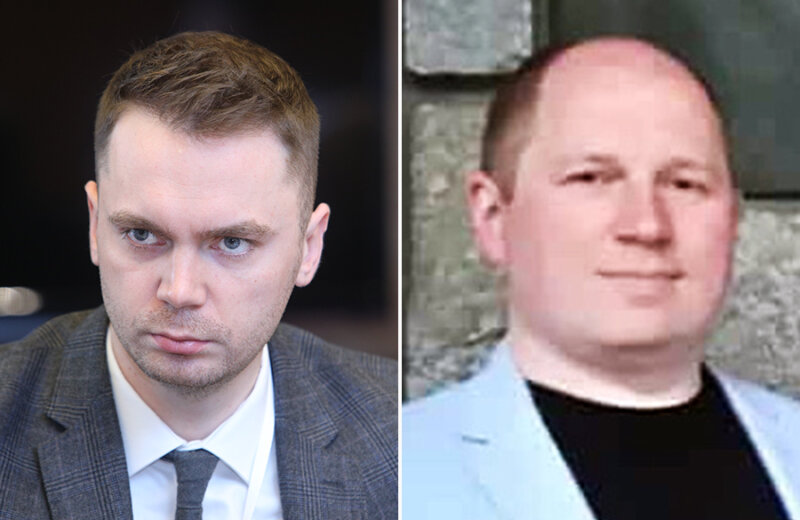Reformer of the week – Mykhailo Zhernakov
Mykhailo Zhernakov, along with Andriy Kulibaba, is one of the two coordinators of the new composition of the Public Integrity Council, which was elected in December.
The Public Integrity Council, the judiciary’s civil society watchdog, said on Jan. 23 it had so far issued negative opinions on 33 candidates for extra jobs at the Supreme Court and would seek to veto more candidates. However, the council’s efforts have been blocked by the High Qualification Commission of Judges.
The High Qualification Commission on Jan. 30 refused to consider the Public Integrity Council’s vetoes on several Supreme Court candidates: Natalia Volkovytska, a member of the High Council of Justice, and judges Roman Baranovsky, Nadiya Gubenko and Mykola Moysyuk.
The commission said it would not consider the vetoes because they had been submitted to it an hour later than the deadline it set for the Public Integrity Council.
The deadline is part of the commission’s new regulations blocking the council’s work that the civic watchdog considers unlawful. In September, the Supreme Court canceled part of the regulations as unlawful, although the deadline remained.
Volkovytska was vetoed because she has resisted efforts to fire judges accused of unlawfully trying EuroMaidan protesters. She was also vetoed because she has been investigated as part of a case into illegal interference into the distribution of cases at the High Commercial Court, although she has not been officially charged and denies the accusations.
Volkovytska and three other High Council of Justice members running for Supreme Court jobs have been accused of having a conflict of interest because the High Council of Justice appoints Supreme Court judges. They have denied the accusations.
Georg Stawa, a European expert who has assessed judicial reform in Ukraine, has told the Kyiv Post they must step down from the council as soon as possible due to the conflict of interest.
Anti-reformer of the week – Serhiy Bodnar
Serhiy Bodnar, a candidate for the High Anti-Corruption Court, has no legal right to be a judge of the court because he had an oral agreement to represent the interests of President Petro Poroshenko’s Bloc in court in 2017, according to several lawyers.
The law on the High Anti-Corruption Court explicitly states that a candidate who has worked for political parties or had any other contractual relations with parties over the past five years cannot be appointed as a judge of the court. However, Bodnar was not vetoed by the Public Council of International Experts (PCIE), a foreign expert panel, when his candidacy was considered on Jan. 22.
Bodnar, a scholar at the Chernivtsi National University, argued that he had represented a party branch, not a party, and that the ban does not apply to this type of work.
Lawyers Roman Kuybida, Vitaly Tytych and Iryna Shyba dismissed Bodnar’s explanations as incorrect, telling the Kyiv Post that the legal ban applies to Bodnar, and he cannot be appointed as a judge of the anti-corruption court.
“The power of attorney that this candidate held to support his representation of the political party refers to an oral agreement which we interpret to mean a contractual relationship,” Ted Zarzeczny, a member of the PCIE, said on Jan. 22.
This was later contradicted by PCIE Chairman Anthony Hooper, who argued that the legal ban might not apply to Bodnar. The High Qualification Commission did not respond to a request for comment.
There are also concerns about potential political influence on Bodnar because he worked as the head of an election commission representing the Poroshenko Bloc in 2014, and his wife works at the Poroshenko Bloc as well. In 2012 he was the head of an election commission representing the Ukraina Vpered party of Natalia Korolevska, an ally of the then president, Viktor Yanukovych. Bodnar argued that he was not biased in favor of any political groups.
Bodnar also failed to declare that his mother worked at the police, and his brother worked at the Security Service of Ukraine. He responded that his mother’s job was not subject to being declared, and his brother’s position was secret.
Inna Bilous, a judge at the Ternopil District Administrative Court, also escaped being vetoed. She banned protests from gathering near administrative buildings in Ternopil during the EuroMaidan Revolution from Dec. 10, 2013 through Jan. 7, 2014. Vitaly Tytych, ex-coordinator of the Public Integrity Council, argued that Bilous’ ban on peaceful assemblies was arbitrary and violated European standards as the ban was applied to an unlimited number of protesters and to an arbitrarily broad area. He added that the ban also violated the standards of the Organization for Security and Cooperation in Europe.



